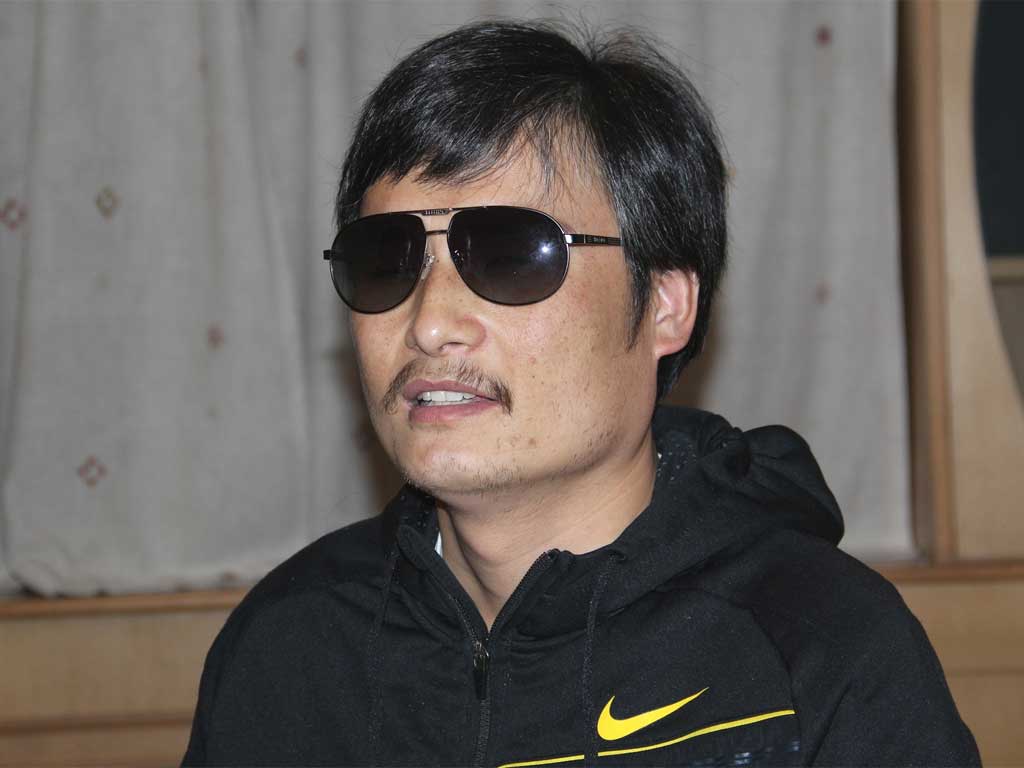Mystery of dissident's fate casts shadow over Clinton's visit to Beijing

Diplomatic tensions over the fate of Chen Guangcheng – the dissident allegedly hiding out at the American consulate in Beijing – cast an ever-lengthening shadow over upcoming talks between Beijing and Washington yesterday as both sides continued to refuse to publicly discuss the issue.
Mr Chen, who escaped from house arrest last week, has become a taboo subject between the nations ahead of high-level strategic and economic talks due to begin in Beijing tomorrow.
The US President, Barack Obama, refused to directly comment on the case at a news conference. He instead called on China to improve its human rights record and said the two countries' relationship "will be that much stronger and China will be that much more prosperous and strong as you see improvements on human rights issues in that country".
The US Secretary of State, Hillary Clinton, who left for Beijing on Monday to attend the talks on currency, trade and market access with the Treasury Secretary, Timothy Geithner, also refused to be drawn on Mr Chen's case. The Assistant Secretary of State, Kurt Campbell, had arrived in Beijing ahead of Ms Clinton to try to work out an agreement on the Chen case.
China is the world's second largest economy and is matching that with growing diplomatic muscle, not to mention its status as an invaluable trading partner and source of crucial investment in Treasury bonds for the US. Gone are the days when the US could make its feelings about China's activities clear, as it did when it halted trade after the brutal crackdown on pro-democracy demonstrators, culminating in the 1989 Tiananmen Square massacre.
But Mr Obama must also appear strong in the face of Republican pressure to protect Mr Chen, without harming trade relations.
There is speculation that Mr Chen will be allowed to leave China with his wife and child. However, Mr Chen, a 40-year-old self-taught lawyer who angered authorities with his critical research on the brutal rural implementation of China's one-child policy, has insisted that he wants to stay in China and campaign for reform.
Allowing him to go into exile would be a face-saving measure for all concerned. Mr Chen was convicted and jailed for four years in 2006, officially on traffic charges. Since his release in 2010, local authorities have kept him under house arrest, without any charges laid against him, and have regularly assaulted him, his family and visitors.
According to activists, police reportedly acknowledged over the weekend that Mr Chen did not break any laws by escaping from house arrest, or by apparently entering the US embassy.
A speedy resolution to the matter is in Beijing's interest. The Communist Party is preparing for a crucial leadership transition later in the year and it is trying to contain other politically destabilising issues, such as the scandal involving former Chongqing Party chief Bo Xilai and the apparent links between his wife, Gu Kailai, and the death of UK businessman Neil Heywood.
The central government has always distanced itself from Mr Chen's case, allowing them the option to let him go into exile and place blame for his treatment on rogue local authorities.
Subscribe to Independent Premium to bookmark this article
Want to bookmark your favourite articles and stories to read or reference later? Start your Independent Premium subscription today.

Join our commenting forum
Join thought-provoking conversations, follow other Independent readers and see their replies